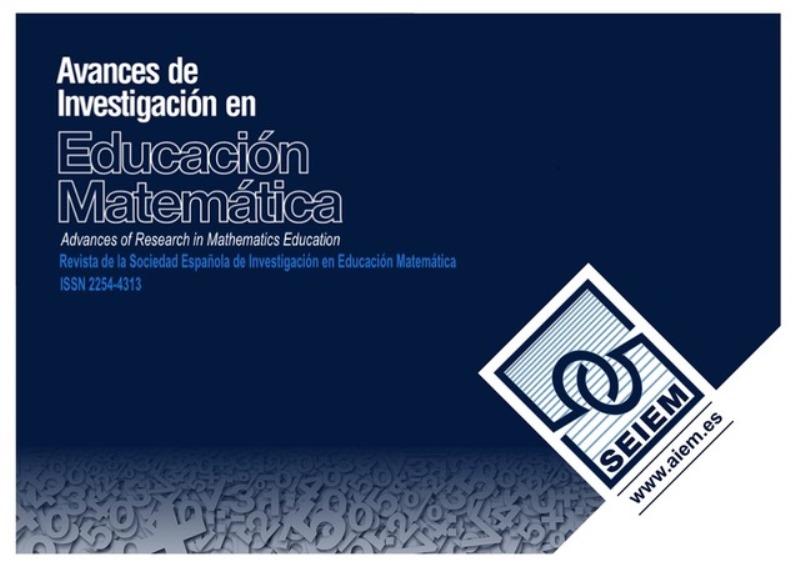Defining, exemplifying, conjecturing ... to proveif a number is a happy number
DOI:
https://doi.org/10.35763/aiem.v1i5.73Keywords:
happy number, concept building, concept definition,, example generation, generalizationAbstract
To instruct future mathematicians weneedto confront them to tasks in which they must perform as if they were really mathematicians. In the task described below a group of students must understand a new definition: the happy number concept definition; they must extract information to generate examples that fit the definition, they must identify non-examples and find generic organizers to construct example spaces and finallysolve a situation concerning these numbers. Theinteractions were first taped and then analyzed using the RBC-C model (Schwarz, Dreyfus,& Hershkowitz, 2009) to document how the process takes place. The results show that, although they did some conscious mistakes, the students confrontedthe task enthusiasticallyand they wenton further the initial purpose
Downloads
Downloads
Published
How to Cite
Issue
Section
License
The articles published in this journal are under a license Creative Commons: By 4.0 España from number 21 (2022).
Authors who publish with this journal agree to the following terms:
- Authors retain copyright and keep the acknowledgement of authorship.
- The texts published in this journal are – unless indicated otherwise – covered by the Creative Commons Attribution 4.0 international licence. You may copy, distribute, transmit and adapt the work, provided you attribute it (authorship, journal name, publisher) in the manner specified by the author(s) or licensor(s). The full text of the licence can be consulted here: http://creativecommons.org/licenses/by-nc/4.0.
- Authors are able to enter into separate, additional contractual arrangements for the non-exclusive distribution of the journal's published version of the work (e.g., post it to an institutional repository or publish it in a book), with an acknowledgement of its initial publication in this journal.
- Authors are permitted and encouraged to post their work online (e.g., in institutional repositories or on their website) prior to and during the submission process, as it can lead to productive exchanges, as well as earlier and greater citation of published work (See The Effect of Open Access).









